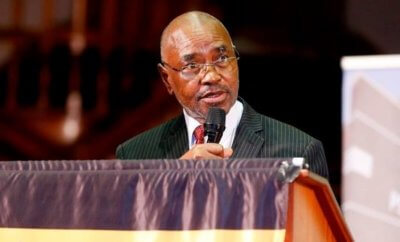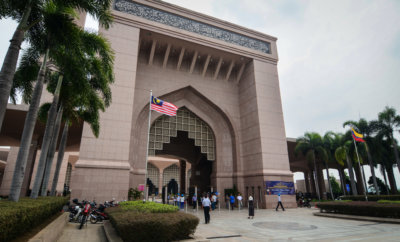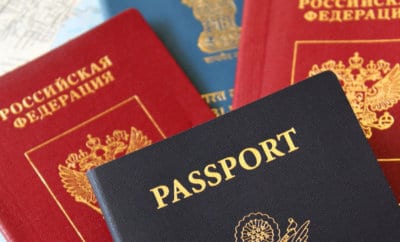Immigration
Indians in Uganda Demand Tribe Status from Govt

Uganda market
Wikimedia Commons
Recognition as a tribe would help foster in them a sense of belonging to the country, the Indian community says.
The Indian community in Uganda has asked the government that they be recognized as a Ugandan tribe. The Indian community said that the move would help foster a sense of belonging to the country.
Following the appeal, President Yoweri Kaguta Museveni urged the Indian-origin residents to apply for citizenship and said that he would support them. “The Constitution is very clear that someone here whose origin is untraceable and those who have lived for 10 years are free to apply for citizenship. Your grandparents have been here and you were born here. So, apply and I will follow it up,” Museveni said, Uganda Today reported.
Sanjiv Patel, a member of the Indian Association of Uganda said that Indian children born and brought up in the country become foreigners as soon as they turn 18, the publication reported. “When we ask for national identity cards, passports and birth certificates, we are required to reveal our tribes, which is a difficult question to respond to,” he added.
Museveni took cognizance of the fact that Asians have lived in Uganda for decades and that they should be recognized as a tribe. “It is the history of African culture to welcome and allow people to be part of them,” he said citing the example of Arabs in Zanzibar.
During a Diwali dinner hosted by him earlier this month at State House Entebbe, Museveni also asked the Indian community to invest in value addition as a move to promote the country’s export earnings. “What you place in the economic development only lack value addition. You started factories to process and add value to our milk and this has laid us a foundation for exporting it. I want Indian businesses to cover other areas which are not covered,” he said.
Members of the Sikh community also urged the government to recognize turban as an official attire. This would help ease their identification and movement while travelling in and out of the country, they said.
“We request that government through the ministry of Internal affairs allows us take passport photographs with our turbans on the head because it is a part of our religion, and it confuses authorities at the airports if the person wearing it presents a passport without it,” Katongole Singh, the chairperson of the Sikh community in Uganda, said, according to Uganda Today.
The population of Uganda includes over 20,000 Indians, who form a small part of the total figure of 41.49 million (as of 2016). Indians were first brought here as laborers by the British more than 100 years ago. Before 1972, around 80,000 Indians lived in Uganda. On Aug. 7, 1972, General Idi Amin, the then military ruler of the country, ordered the expulsion of Asians after seizing power in a military coup in 1971. He accused Indians of milking the Ugandan economy of its wealth and gave them 90 days to leave.
However, many Indians returned to Uganda in the 1980s and 1990s and once again dominated the economy of the country, now estimated to contribute up to 65 per cent of Uganda’s tax revenues. Many now own some of the most prominent companies in the African nation. The richest man in Uganda is Sudhir Ruparelia, who is of Gujarati descent, and has an estimated fortune of $800 million made through his businesses spanning real estate, banking and hotel sectors. Other prominent persons in the country, including industrialist Alykhan Karmali, former Supreme Court justice Anup Singh Choudry, and steel magnate Sikander Lalani, also trace their origin to India.
In neighboring Kenya, people of Indian decent were recognized as the 44th tribe in July 2017 after President Uhuru Kenyatta gazetted the change. He invited them to participate in the political, economic, cultural and social development of the nation.




1 Comment
You must be logged in to post a comment Login